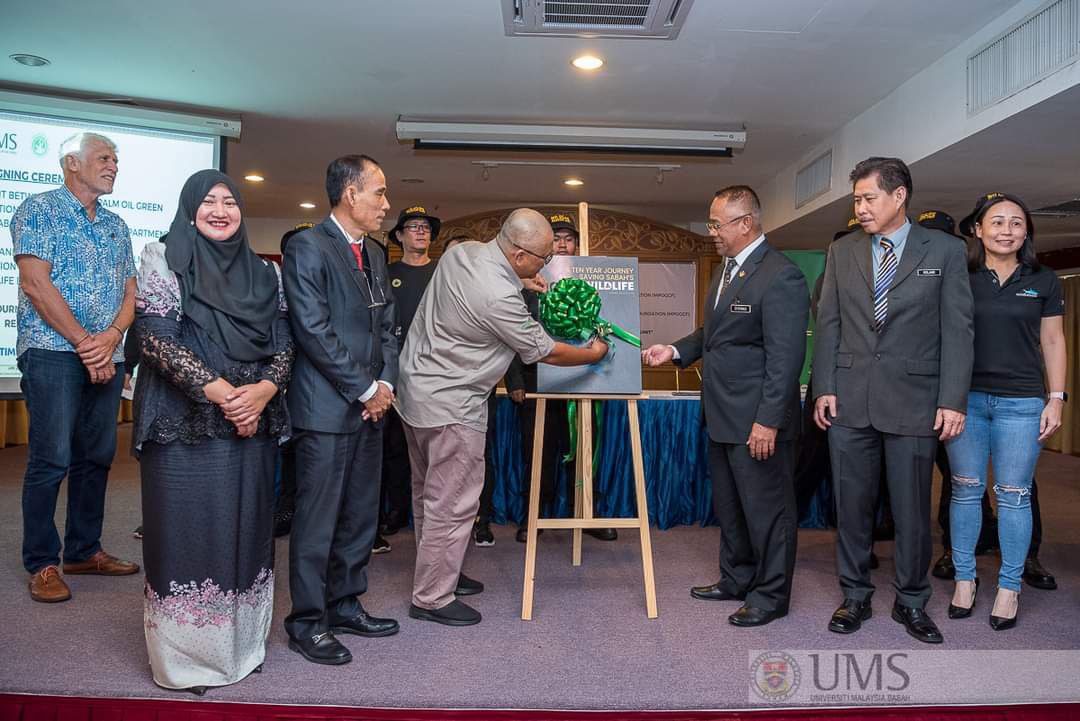 Universiti Malaysia Sabah (UMS) terus mempergiatkan pelbagai usaha berkaitan pemuliharaan alam semula jadi dan perlindungan biodiversiti yang merupakan khazanah berharga khususnya bagi negeri Sabah.
Universiti Malaysia Sabah (UMS) terus mempergiatkan pelbagai usaha berkaitan pemuliharaan alam semula jadi dan perlindungan biodiversiti yang merupakan khazanah berharga khususnya bagi negeri Sabah.
Menurut Naib Canselor UMS, Profesor Datuk Dr. Kasim Hj. Mansor, usaha berterusan oleh Institut Biologi Tropika dan Pemuliharaan (IBTP) dan Fakulti Perhutanan Tropika (FPT) UMS adalah amat penting sebagai latihan dan sokongan kepada generasi akan datang untuk memanfaatkan dan mengurus alam semula jadi secara mampan.
“Isu pembangunan manusia, kehilangan biodiversiti dan kepupusan spesis haiwan liar telah menjadi kemelut kepada dunia masa kini.
“Dengan kekayaan hutan hujan tropika yang asli serta ekosistem marin, negeri Sabah menjadi lokasi terbaik bagi usaha latihan dan sokongan terhadap pemuliharaan dan perlindungan biodiversiti alam semula jadi.
“Ciri biodiversiti di Sabah yang unik membolehkan aktiviti penyelidikan secara konsisten dapat dijalankan bagi memahami nilai, interaksi, dan sumbangannya kepada kesejahteraan manusia,” katanya.
Beliau berkata demikian dalam ucapan sempena Majlis Menandatangani Memorandum Perjanjian antara UMS dengan Yayasan Pemuliharaan Hijau Minyak Sawit Malaysia (MPOGCF), Jabatan Hidupan Liar Sabah, dan Hutan di Galeri Majlis, UMS.
Teks ucapan beliau dibacakan oleh Timbalan Naib Canselor (Penyelidikan dan Inovasi) UMS, Profesor. Ir. Dr. Rosalam Sarbatly.
Menyentuh mengenai pemeteraian perjanjian antara agensi-agensi tersebut, Kasim memaklumkan perjanjian kerjasama yang dijalankan adalah ke arah usaha untuk memulihara alam semula jadi dan melindungi biodiversiti daripada kepupusan.
“Kerjasama ini adalah selaras dengan peranan MPOGCF yang menyokong dan memperkukuh usaha-usaha pemuliharaan alam sekitar.
“Manakala Jabatan Hidupan Liar Sabah sebagai pihak berkuasa hidupan liar tempatan, berdiri sebagai mercu tanda perlindungan untuk kekayaan biodiversiti di rantau kita,” ujar beliau.
Beliau menambah, pemeteraian perjanjian ini juga melambangkan perpaduan, dedikasi dan harapan untuk masa depan dalam melindungi alam semula jadi untuk generasi yang akan datang.
“Usaha ini adalah permulaan kepada lebih banyak usaha niaga yang direka untuk lebih mendalami pemahaman dan penghayatan terhadap alam semula jadi,” ujar beliau.
Pada majlis tersebut, turut berlangsung acara pelancaran buku ‘A Ten-Year Journey Savings Sabah’s Wildlife Rescue Unit’ yang disempurnakan oleh Pemangku Pengurus Besar MPOGCF, Hairulazim Mahmud.
Hadir sama Timbalan Pengarah Jabatan Hidupan Liar Sabah, Roland Oliver Niun; Pengarah Saintifik HUTAN, Dr. Marc Acrenaz; Setiausaha Bahagian Kemajuan Industri Sawit dan Sago, Severinus Tukah @ Tukang; dan Pengarah IBTP, Prof. Madya Dr. Fiffy Hanisdah Saikim.
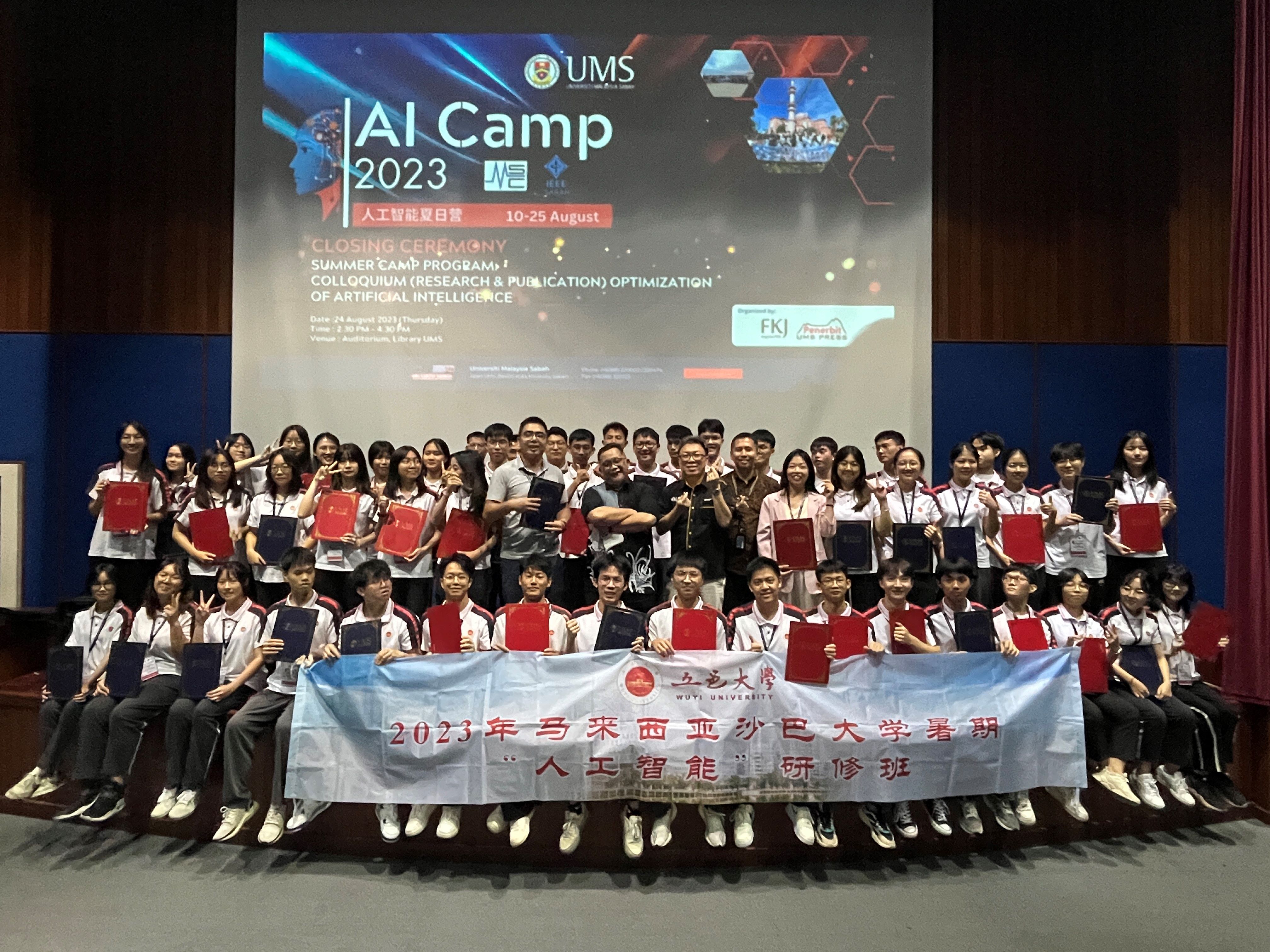 Universiti Malaysia Sabah (UMS) Press wraps up a Summer Camp with Wuyi University, China delegation by organizing the Summer Camp: UMS Colloquium on Artificial Intelligence (Research and Publication) recently.
Universiti Malaysia Sabah (UMS) Press wraps up a Summer Camp with Wuyi University, China delegation by organizing the Summer Camp: UMS Colloquium on Artificial Intelligence (Research and Publication) recently.


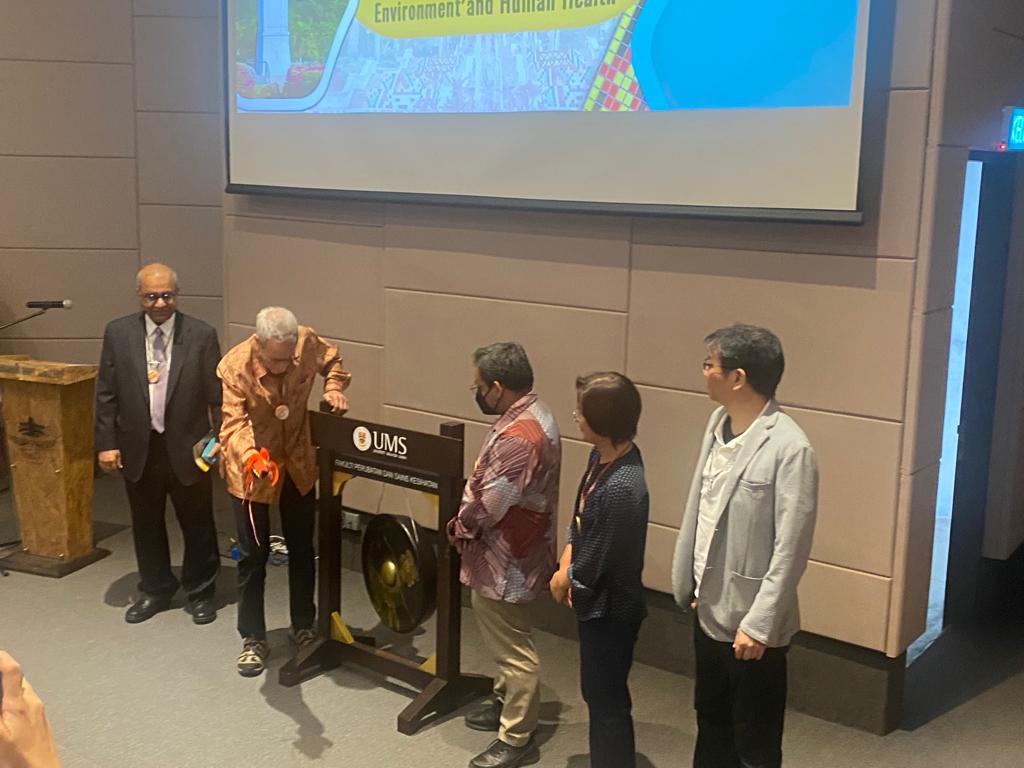 Fakulti Perubatan dan Sains Kesihatan (FPSK), Universiti Malaysia Sabah (UMS) telah menganjurkan Kongres Antarabangsa Fisiologi baru-baru ini sebagai lensa unik untuk memahami isu berkaitan penyakit berjangkit.
Fakulti Perubatan dan Sains Kesihatan (FPSK), Universiti Malaysia Sabah (UMS) telah menganjurkan Kongres Antarabangsa Fisiologi baru-baru ini sebagai lensa unik untuk memahami isu berkaitan penyakit berjangkit.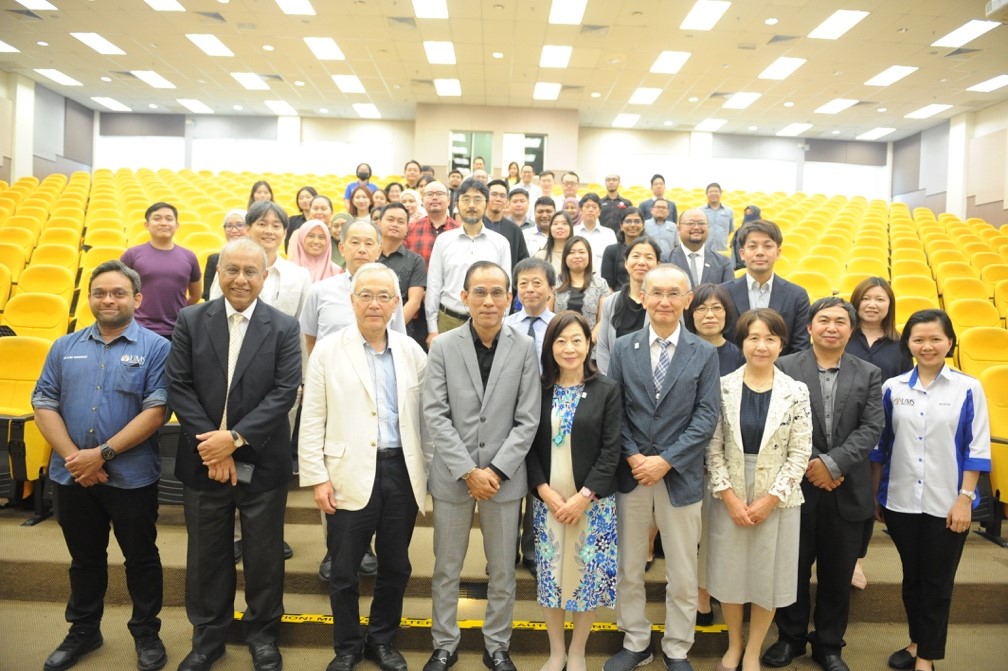 Universiti Malaysia Sabah (UMS) menjalinkan kolaborasi bersama Universiti Nagasaki, Jepun bagi penganjuran Nagasaki University 1st Joint Symposium on Planetary Health di Fakulti Perubatan dan Sains Kesihatan (FPSK), baru-baru ini.
Universiti Malaysia Sabah (UMS) menjalinkan kolaborasi bersama Universiti Nagasaki, Jepun bagi penganjuran Nagasaki University 1st Joint Symposium on Planetary Health di Fakulti Perubatan dan Sains Kesihatan (FPSK), baru-baru ini.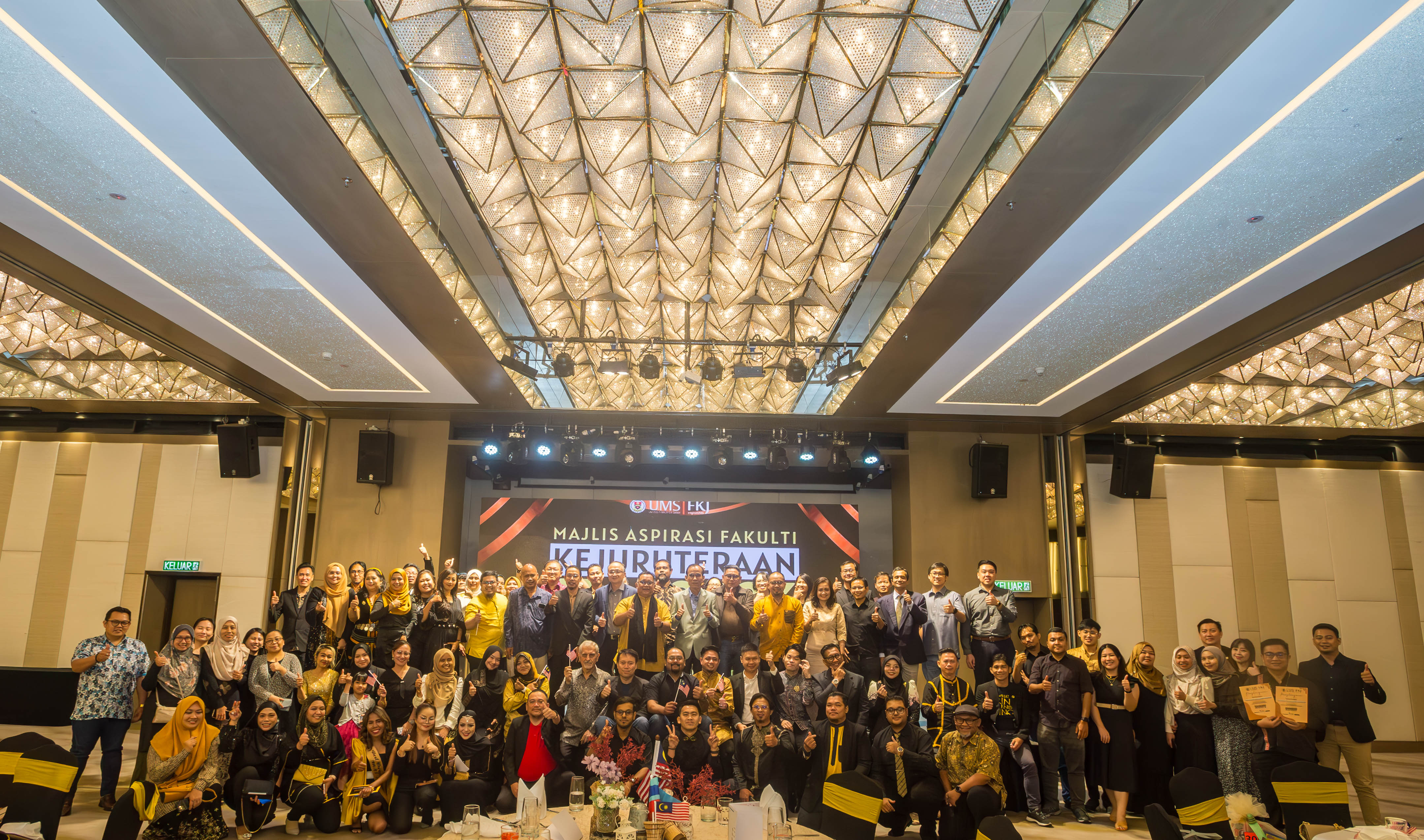 Fakulti Kejuruteraan (FKJ), Universiti Malaysia Sabah (UMS), meraikan kakitangannya yang menunjukkan prestasi cemerlang dalam menyampaikan perkhidmatan melalui penganjuran Majlis Aspirasi Fakulti Kejuruteraan 2023 (MAF2023) baru-baru ini.
Fakulti Kejuruteraan (FKJ), Universiti Malaysia Sabah (UMS), meraikan kakitangannya yang menunjukkan prestasi cemerlang dalam menyampaikan perkhidmatan melalui penganjuran Majlis Aspirasi Fakulti Kejuruteraan 2023 (MAF2023) baru-baru ini. Universiti Malaysia Sabah (UMS) terus mempergiatkan pelbagai usaha berkaitan pemuliharaan alam semula jadi dan perlindungan biodiversiti yang merupakan khazanah berharga khususnya bagi negeri Sabah.
Universiti Malaysia Sabah (UMS) terus mempergiatkan pelbagai usaha berkaitan pemuliharaan alam semula jadi dan perlindungan biodiversiti yang merupakan khazanah berharga khususnya bagi negeri Sabah.